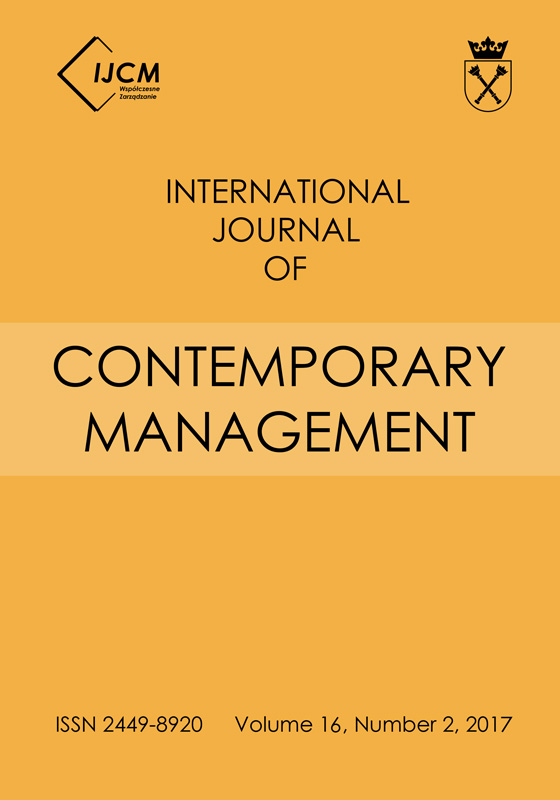The Importance of Mentoring in Employee Work Engagement – Based on Research of Company Employees in Poland
The Importance of Mentoring in Employee Work Engagement – Based on Research of Company Employees in Poland
Author(s): Małgorzata BaranSubject(s): Business Economy / Management
Published by: Wydawnictwo Uniwersytetu Jagiellońskiego
Keywords: mentoring; work engagement; employees
Summary/Abstract: Background. The success of a company, in addition to today’s very turbulent and demanding external environment, is influenced by internal organisational factors. In particular, a pivotal role in a company’s success is undoubtedly played by human capital, where engagement at work manifests itself through employees with identified approaches, attitudes, views, and behaviours. Research indicates that mentoring can be an effective tool for supporting employees, because it influences not only development, in the broad sense, of the employees themselves, but also the development of the entire organisation. By affecting employees’ attitudes and behaviour, it influences their commitment to work, which can contribute to the success of the whole organisation.Research aims. The purpose of this article is to examine the relationship between employees’ use of mentoring in the company and their engagement at work. Methodology. A quantitative study was conducted on a non-probable sample of 1,010 employees of companies operating in Poland who had participated in a mentoring programme in their company. Only employees who had completed a mentoring programme were selected for this study. Data collection was achieved through a questionnaire survey. The method used allowed the author to obtain aggregate and comparable data by using standardised questions. This research made use of Schaufeli’s frequently employed concept of work engagement. The questionnaire used in this study was the Utrecht Work Engagement Scale. Key findings. The findings demonstrate the importance of the mentoring process in shaping employee engagement in work. The involvement of employees in the mentoring process was found to affect their engagement. According to statistical analysis of the obtained results, the work engagement of employees is positively correlated with in-house mentoring programme participation.
Journal: International Journal of Contemporary Management
- Issue Year: 16/2017
- Issue No: 2
- Page Range: 33-56
- Page Count: 24
- Language: English

